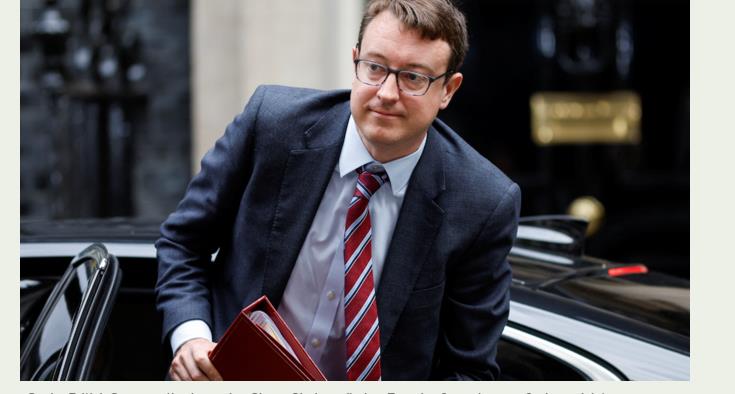
My suggestion that a federal or decentralized political system be established in Lebanon has brought criticism from some in my Middle East network. They agree with my views on the state of the country, and the role of Hezbollah and Iran, but disagree on the solution.
One of the main counter-examples used to argue against my federal push is Iraq. They say that Iraq has implemented a federal government, but the country is weaker and Iranian militias have grown stronger as a result. The same would happen in Lebanon, their argument goes, and, in fact, what is needed is a centralized powerful executive system that brings back order to all.
My answer is that I do not believe Iraq has implemented a true federal system but has subordinated regions to Iranian power.
I will admit to judging Nouri Al-Maliki, Iraq’s first post-war prime minister, wrongly. I, for one, thought that having a strong Shiite leader would appease the country’s nascent Shiite political leadership and community, reassure Iran, and allow for the state building process to start. The view was that after years of oppression, a federal Iraq would liberate the Shiite community, as well as the Sunni and Kurdish communities since they were all living under the same Baath party oppression.
Unfortunately, the opposite happened. Al-Maliki did not support the federal system, but pushed to centralize political decision-making within his coalition on key issues, and punished and violently isolated other Iraqi communities.
While Kurdistan had their peshmergas and could protect themselves, the Arab Sunnis were not so lucky, and a heavy price was paid. Many analysts blame the rise of Daesh and extremism in that region on the state repeatedly letting down the Sunni community after 2003. It is still difficult to understand how this extremist and terrorist organization was able to defeat US-trained Iraqi forces in such a short period in 2014.
The impact of what followed was clear. It gave a free hand to all Iran’s allies in the region — not only Al-Maliki in Iraq but also Bashar Assad in Syria. One of Al-Maliki’s most damaging actions was to adopt a hostile stance toward Arab countries and throw himself into support for the Iranian regime by allowing, if not encouraging, pro-Iranian militias to take root in Iraq. This went in parallel with high-levels of corruption linked to Tehran.
As prime minister, Mustafa Al-Kadhimi is trying to rebalance this situation, but he has inherited a decrepit state on many levels, including a health system that is tightly controlled by the Iranian regime in Iraq. The result of this corruption is a health care system in poor condition and prone to serious accidents. This was clear in the hospital blaze in the southern Iraqi city of Nasiriyah on Monday that killed more than 92 people. The latest tragedy comes only months after a hospital fire in Baghdad killed more than 80 people. It is symbolic of Iranian interference and the way Tehran has built an extractive economy in Iraq. This also applies to electricity, education and infrastructure.
Unfortunately, pro-Iranian militias are growing stronger. And, today, Iran feels emboldened by the negotiations for a new Joint Comprehensive Plan of Action, or Iran nuclear deal. There is a clear expectation of an upcoming finance boom for the Iran regime. In these conditions, can Iraq escape Iran’s grip? Is Iraq doomed to become a failed state like Lebanon? In that respect there are more links between the two countries than are generally imagined.
As is the case in Lebanon, Iraq’s upcoming parliamentary elections in October are unlikely to bring a viable solution to the country’s ills. Why? Simply because the militias are above the law. This is clear when more than 70 activists have been killed or abducted in the past year by these armed groups, including the Popular Mobilization Units (PMU), which are, in theory, under the supervision of the prime minister’s office.
So what are the possibilities for real change that would put Iraq on the path toward becoming a stable and prosperous state for all its citizens? The only way is to start with a complete dismantling and disarming of the militias.
Is there a regional agreement with the Tehran regime that will convince them to support positive change? It seems that the Iranian demand for this is not worth the price for international and regional powers who are now used to this instability and have accommodated themselves with it. Moreover, no one likes to yield to blackmail as it is an invitation to similar situations. And Iran is taking Iraq, Lebanon and the region hostage and pursuing a strategy of blackmail.
The upcoming elections are unlikely to bring a viable solution to Iraq’s ills — simply because the militias are above the law.
Khaled Abou Zahr
Hence, there is little hope that in the wake of a new nuclear deal and the lifting of sanctions the Iranian regime will launch a positive initiative for stability in the Middle East. One would expect the opposite to happen, with more support and expansion from its proxies in the region, especially as Western capitals begin discussing the resurgence of Daesh. One solution put forward for stability in Iraq is regime change in Iran, but despite my opposition to the actions of this regime in the Arab world, I believe this would be an even more dangerous and explosive option.
The real possibility for change can come only with a new balance of power on the ground. And the only way to counterbalance and force the militias to disengage is the streets: An alliance of large numbers of protesters with the honorable men and women in the Iraqi armed forces. This alone will force change.
Al-Kadhimi could be the man to lead this change since he is respected and popular. Yet, he will need to make an important choice: Stand with the protesters and activists, such as Ali Al-Mikdam, the abducted journalist he visited in hospital last week. Or stand with the PMU, which is accused of Al-Mikdam’s abduction and whose military parade the PM recently attended. The Arab world is in need of this change.
Khaled Abou Zahr is CEO of Eurabia, a media and tech company. He is also the editor of Al-Watan Al-Arabi.
Disclaimer: Views expressed by writers in this section are their own and do not necessarily reflect Arab News" point-of-view












